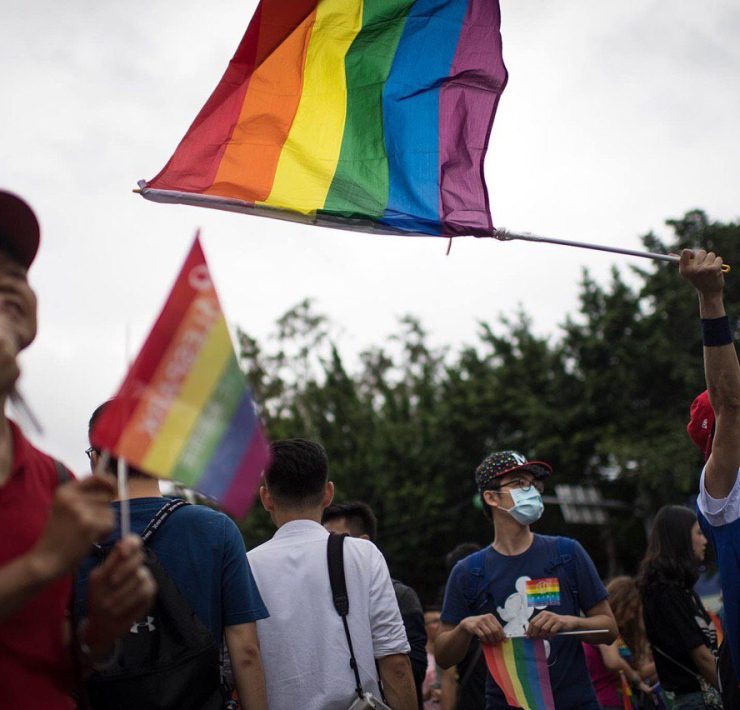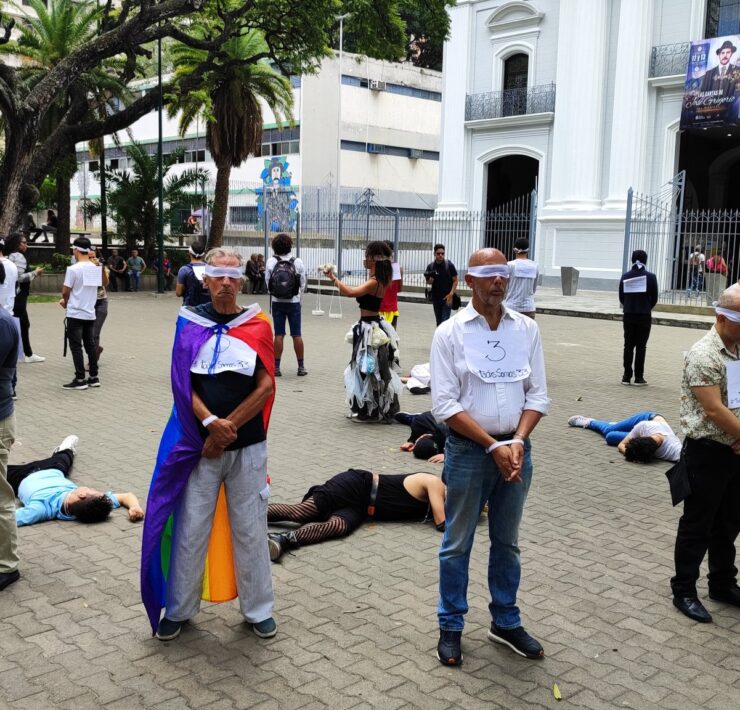Police at Pride?

Sid Pasquino is an intern for the editorial team at…
On April 2, Pride Toronto tweeted an official statement requesting that the city’s police withdraw their request to march in uniform in the parade. The statement, released by Pride Toronto as well as The 519, Black Coalition for AIDS Prevention, Toronto People with AIDS Foundation and other influential members of the community, stated that a large influence in this decision was the way the Toronto Police handled a serial killer who targeted young, gay men earlier this year. The community felt as though their voices and expertise on the subject were ignored by the police, and that the serial killer was not investigated seriously due to who the victims were. The statement reads:
“…Our communities live with ongoing, deeply rooted, and historical trauma which has too often been caused by the institutions that claim to represent us. People are scared for themselves and for the lives of their friends and families…”
Joint public statement about police participation in Pride Toronto’s 2018 parade. Signed by The 519, Toronto People With AIDS Foundation, Sherbourne Health Centre, ASAAP, Black Coalition for AIDS Prevention (Black CAP) and Pride Toronto. #prideto pic.twitter.com/oG5XFyaD5B
— Pride Toronto (@PrideToronto) April 3, 2018
This is not a new issue for Toronto. In 2016, Black Lives Matter protested during Toronto Pride; they stopped marching in the parade and set off smoke grenades. The parade only resumed once the Toronto Pride Director agreed to a list of demands, which included more spots for queer people of color to be represented, as well as an end to police floats.
The apparent connection between these events seems to be the lack of representation of queer people of color, as well as feeling unsafe and unprotected by law enforcement individuals.
According to The Williams Institute, queer people of color are at higher risk to be targeted for police violence, and black trans women are at the top of that list. Trans woman of color are seven times more likely to experience bodily harm from the police. Due to the nature of the situation, it is only natural that some members of the queer community do not feel safe allowing police to march in the pride parade, when every other day of the year they seem to be targeting queer people of color.
The police has done shit to help bridges. They ignored our cries for help. Now they want to pretend to be allies for positive coverage.
— Eduardo Leão (@fk_eduardo) April 4, 2018
Other members of the queer community, however, are outraged that police would be excluded from the festivities.
The relationship between the queer community and the police has changed drastically since Stonewall. Some members of the community believe that not allowing the police to march in uniform simply reversed some of the progress they made establishing trust in the force.
“For those of us who are older and were part of that first generation to come out, at some cost, we grew up in an era where people were barred, lost their homes, jobs, were subjected fairly regularly to beatings, and where the police were not our friends,” Sean Bickerton, a Vancouver gay activist, told National Post.
“So a lot of people worked very hard to build relationships, and to build trust with the law enforcement and the justice community. To see that thrown away is for us who come from that generation a tragic error in strategy, and it flies in the face of the way that we gained acceptance in society.”
Building bridges through division. First QAIA, then you lost my support two years ago after BLM hijacked the parade that started this whole nonsense. You have ruined a celebration of acceptance and inclusion. Way to go.
— Launy Schwartz (@TheSchwartz5454) April 3, 2018
Terrible. As a member of the community, I want the police to be welcome.
— Mark Wickens ???? (@mwickens) April 3, 2018
LGBTQ policemen have called the ban alienating, saying they have lost their opportunity to express their identity in a normally hostile environment. A solution proposed by other members of the community is for these policemen to still march, but not in uniform. Often these same members of the community consider the police marching to be against the nature and creation of Pride itself, since Pride started as a riot against police raids—started by trans woman of color Marsha P. Johnson.
It is and akways has been a protest.
— Bed, Bath and Beyonce (@JamesForbes17) April 3, 2018
Be Inclusive and Be yourself.. have fun, engage and smile.. this is to reassure our communities as many of us are part of the #lgbt communities.. Powerful words from @NYP_LGBT Chair.. Important that we are welcome! #westandtogether @YorkPride #pride #Flagitup #hatecrime pic.twitter.com/ryksyegHNV
— DC Tracy OHara QPM (@MsOHara71) June 9, 2018
Multiple community members have also expressed that having the police present helps them feel safe, especially after the Pulse shooting that occured just over two years ago. But there are some things to consider: even if cops are not allowed to march, they will still be there on security detail. Also, many queer people of color feel that the force only acts to protect the white queers, and feel unsafe participating in Pride festivities while they are present.
So how should the LGBTQ community respond to this issue?
It is important for Pride to be a safe place for all, and there are obvious contradicting feelings about safety involving the police force. Despite these feelings, they will always be at Pride for security reasons. The only way to move forward seems to be to have a conversation with law enforcement concerning persecution, and hope that they listen.
What's Your Reaction?
Sid Pasquino is an intern for the editorial team at OUT FRONT, as well as a local Coloradan. He studies liberal arts at St. Johns College in Santa Fe, New Mexico. He is an avid dog lover, and always excited to talk about classical literature.









